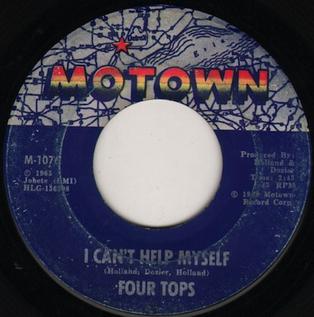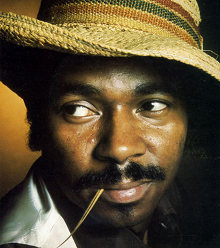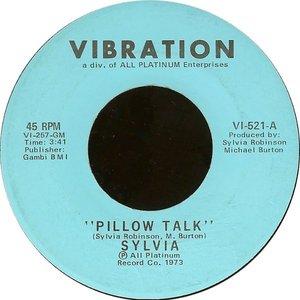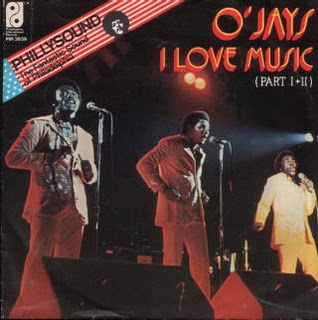Related Research Articles

"I Can't Help Myself (Sugar Pie Honey Bunch)" is a 1965 hit song recorded by the Four Tops for the Motown label.

"Ain't Nothing Like the Real Thing" is a 1968 single released by American R&B/soul duo Marvin Gaye and Tammi Terrell, on the Tamla label in 1968. The B-side of the single is "Little Ole Boy, Little Ole Girl" from the duo's United LP. The first release off the duo's second album: You're All I Need, the song - written and produced by regular Gaye/Terrell collaborators Ashford & Simpson - became a hit within weeks of release eventually peaking at number 8 on the Billboard Hot 100 and number 1 on the Hot Soul Singles chart, the first of the duo's two number 1 R&B hits. In the UK "Ain't Nothing Like the Real Thing" reached number 34.

Van Allen Clinton McCoy was an American musician, record producer, arranger, songwriter, singer and orchestra conductor. He is known for his 1975 internationally successful hit "The Hustle". He has approximately 700 song copyrights to his credit, and produced songs by such recording artists as Gladys Knight & the Pips, The Stylistics, Aretha Franklin, Brenda & the Tabulations, David Ruffin, Peaches & Herb, Lesley Gore and Stacy Lattisaw.

"Pillow Talk" is a 1973 song by American singer and songwriter Sylvia, written by Sylvia along with Michael Burton.

"Get Down Tonight" is a song released in 1975 on the self-titled album by the disco group KC and the Sunshine Band. The song became widely successful, becoming the first of their five No. 1 hits on the Billboard Hot 100. It also reached the top of the Hot Soul Singles chart and was an international chart hit, reaching No. 1 in Canada and charting in Australia, Belgium, the Netherlands, and the UK.

"I've Been Loving You Too Long" (originally "I've Been Loving You Too Long (To Stop Now)") is a soul music ballad written by Otis Redding and Jerry Butler. Considered by music critics and writers to be one of Redding's finest performances and a soul classic, it is a slow, emotional piece with Redding's pleading vocals backed by producer Steve Cropper's arpeggiated guitar parts and a horn section.

"If You Don't Know Me by Now" is a song written by Kenny Gamble and Leon Huff, and recorded by the Philadelphia soul musical group Harold Melvin & the Blue Notes. It became their first hit after being released as a single in September 1972, topping the US R&B chart and peaking at number 3 on the US Billboard Hot 100.
"Don't Leave Me This Way" is a song written by Kenneth Gamble, Leon Huff and Cary Gilbert. It was originally released in 1975 by Harold Melvin & the Blue Notes featuring Teddy Pendergrass, an act signed to Gamble & Huff's Philadelphia International label. "Don't Leave Me This Way" was subsequently covered by American singer Thelma Houston in 1976 and British duo the Communards in 1986, with both versions achieving commercial success.

"Soul Man" is a 1967 song written and composed by Isaac Hayes and David Porter, first successful as a number 2 hit single by Atlantic Records soul duo Sam & Dave, which consisted of Samuel "Sam" Moore and David "Dave" Prater. In 2019, "Soul Man" was selected for preservation in the National Recording Registry as "culturally, historically, and aesthetically significant" by the Library of Congress. It was No. 463 in "Top 500 Greatest Songs of All Time" by Rolling Stone Magazine in 2010 and No. 458 in 2004.

"Fly, Robin, Fly" is a song by the German disco group Silver Convention from their debut studio album Save Me (1975). Sylvester Levay and Stephan Prager wrote the song, and the latter produced it. "Fly, Robin, Fly" was released as the third single from Save Me in September 1975, peaking at number one on the United States Billboard Hot 100. Thanks to the success of "Fly, Robin, Fly", Silver Convention became the second German act to have a number one song on the American music charts. The song received a Grammy Award for Best R&B Instrumental Performance in 1976.

"I Love Music" is a song by American R&B group The O'Jays. It was written by production team Gamble and Huff. The song appeared on The O'Jays 1975 album, Family Reunion. The single reached number five on the US Billboard Hot 100 and number one on the soul singles chart. In the UK, the song peaked at number 13 in the Top 40 singles charts in March 1976. The single spent eight weeks at number one on the US Disco File Top 20 chart.

This article contains information about albums and singles released by Ike & Tina Turner.

"Take Me in Your Arms (Rock Me a Little While)" is a song written by the premier Motown songwriting/production team of the 1960s Holland–Dozier–Holland. The first hit recording was sung by Kim Weston in 1965. It was most popular in 1975 when it was recorded by the Doobie Brothers.
"Shake" is a song written and recorded by Sam Cooke. It was recorded at the last recording session Cooke had before his death on December 11, 1964. In the U.S., the song became a posthumous Billboard, Top 10 hit for Cooke, peaking at number seven in February 1965, as well as peaking at number two for three weeks on the Cashbox R&B charts.

"How 'Bout Us" is the most successful single released by R&B music group Champaign. Composed by band keyboardist Dana Walden and originally released on the band's debut album How 'Bout Us, the title track peaked at number 12 on the Billboard Hot 100. A romantic ballad, the song was released on Valentine's Day, 1981.

"She's Gone" is a song written and originally performed by the American duo Daryl Hall and John Oates. The soul ballad is included on their 1973 album, Abandoned Luncheonette.

"Heaven Must Be Missing an Angel" is a disco song written by Freddie Perren and Keni St. Lewis. It was recorded by the American band Tavares in 1976. It was released as the first single from their fourth album, Sky High! (1976), and was split into two parts: the first part was 3 minutes and 28 seconds in length, while the second part was 3 minutes and 10 seconds. "Heaven Must Be Missing an Angel" was re-released in February 1986.

"Love Won't Let Me Wait" is a hit 1975 single by Major Harris, a former member of R&B/soul group The Delfonics. Written by Vinnie Barrett and Bobby Eli, the single is considered to be a staple of classic soul playlists, and was Harris' only entry into the top five on both the soul and pop charts. The single hit number five on the pop chart, and also hit number one on the soul chart for one week. Billboard ranked it as the No. 24 song for 1975. It was awarded a gold disc by the R.I.A.A. on 25 June 1975.
"Funny How Time Slips Away" is a song written by Willie Nelson and first recorded by country singer Billy Walker. Walker's version was issued as single by Columbia Records in June 1961 and peaked at number 23 on the Hot C&W Sides chart.

"How Sweet It Is (To Be Loved by You)" is a song recorded by American soul singer Marvin Gaye from his fifth studio album of the same name (1965). It was written in 1964 by the Motown songwriting team of Holland–Dozier–Holland, and produced by Brian Holland and Lamont Dozier. The song title was inspired by one of the actor and comedian Jackie Gleason's signature phrases, "How Sweet It Is!"
References
- ↑ Whitburn, Joel (2004). Top R&B/Hip-Hop Singles: 1942-2004. Record Research. p. 130.
- ↑ "CashBox Singles Reviews" (PDF). Cash Box. August 28, 1976. p. 18. Retrieved 2021-12-11.
- ↑ Kent, David (1993). Australian Chart Book 1970–1992 (illustrated ed.). St Ives, N.S.W.: Australian Chart Book. p. 72. ISBN 0-646-11917-6.